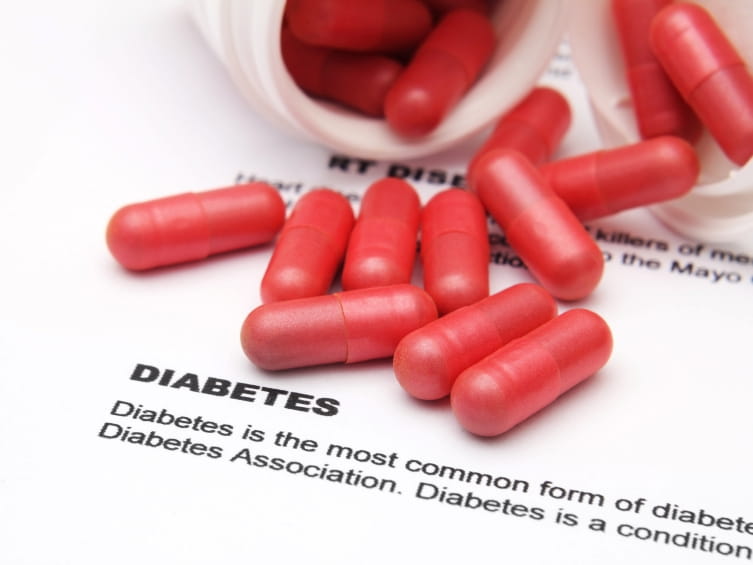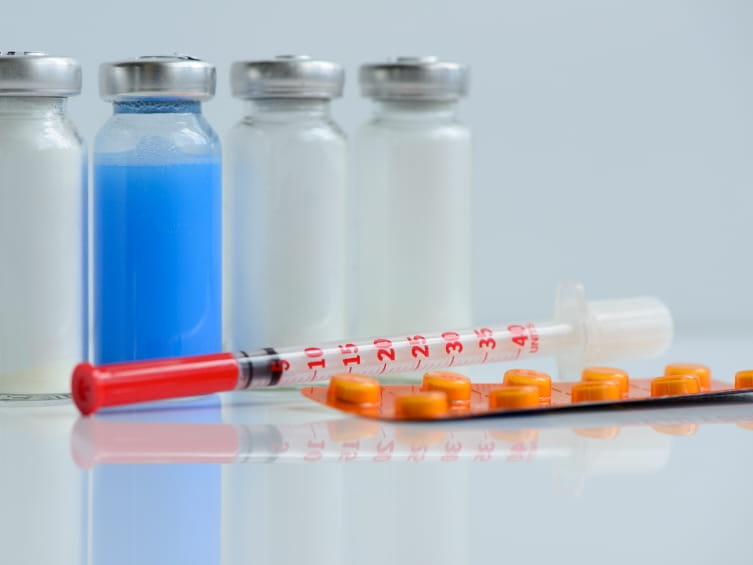Diabetes Medication Overdoses in Children

The Bottom Line
For young children, there is no safe dose of pills to treat diabetes. Even one pill can cause a child's blood sugar to drop dangerously low, causing seizures, coma, or death.

The Full Story
Pills to treat diabetes are among the most dangerous medicines small children get into. A child who swallows even one of these pills must go the emergency room and usually must be admitted to the hospital for at least a day.
There are several types of diabetes pills, called "oral hypoglycemics", to treat Type 2 diabetes. Some names are glipizide, glyburide, and chlorpropamide, though there are many others. Some act by increasing insulin release from the pancreas. Others make it easier for cells to use glucose. All act to lower blood sugar; this is the intended effect in someone with diabetes.
For young children, there is no safe dose of these drugs. Even one pill can cause a child's blood sugar to drop dangerously low, causing seizures, coma, or death. These effects may not occur for twenty-four hours and can last up to three days. This means that a child who seems fine at bedtime can have seizures during the night unless he or she is being monitored closely.
Use the webPOISONCONTROL® online tool for guidance or call Poison Control immediately at 1-800-222-1222 if a child swallows a diabetes pill (or any medicine). Poison Control will tell you exactly what to do, and will guide you every step of the way. If a child does need emergency treatment, Poison Control will work with paramedics and the emergency room staff to be sure that all of the right treatment is carried out.
Pills to treat diabetes should be stored in their original containers. Lock them up where children cannot see or reach them. If a child swallows even one pill, take it seriously! Don't wait to see what might happen. Use the webPOISONCONTROL online tool for guidance or call Poison Control right away.
Rose Ann Gould Soloway, RN, BSN, MSEd, DABAT emerita
Clinical Toxicologist
Poisoned?
Call 1-800-222-1222 or
Prevention Tips
- Pills to treat diabetes should be stored in their original containers.
- If a child swallows even one pill, take it seriously!
This Really Happened
A 16-month-old girl swallowed a 10 mg tablet of glipizide (a diabetes medication, in the sulfonylurea class). Her mother called Poison Control an hour later and the child was referred in to the nearest emergency room, where her blood glucose was found to be low. She required 3 doses of intravenous (IV, through a vein) dextrose 25%. Poison Control recommended hospitalization with frequent monitoring of her blood glucose since this type of diabetes drug may cause low blood glucose for up to 24 hours. The child was fed and watched closely. Her blood glucose stabilized and she was sent home 24 hours after swallowing the pill.
References
Poisoned?
Call 1-800-222-1222 or
Prevention Tips
- Pills to treat diabetes should be stored in their original containers.
- If a child swallows even one pill, take it seriously!
This Really Happened
A 16-month-old girl swallowed a 10 mg tablet of glipizide (a diabetes medication, in the sulfonylurea class). Her mother called Poison Control an hour later and the child was referred in to the nearest emergency room, where her blood glucose was found to be low. She required 3 doses of intravenous (IV, through a vein) dextrose 25%. Poison Control recommended hospitalization with frequent monitoring of her blood glucose since this type of diabetes drug may cause low blood glucose for up to 24 hours. The child was fed and watched closely. Her blood glucose stabilized and she was sent home 24 hours after swallowing the pill.
